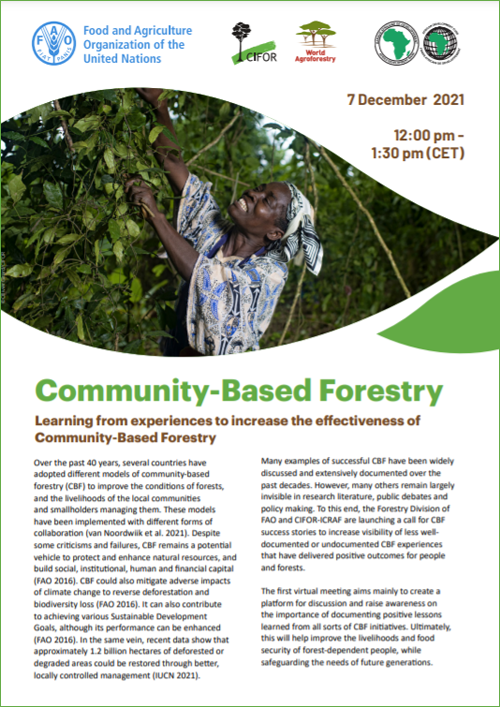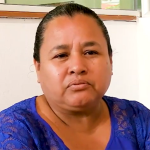Over the past 40 years, several countries have adopted different models of community-based forestry to improve forest conditions and the livelihoods of local communities and smallholders managing the forests. Various regimes have been implemented with various forms of collaborations (van Noordwijk et al., 2021). Despite criticisms and failures reported in some countries, community-based forestry remains a potential vehicle to protect and enhance natural resources, and build social, institutional, human, and financial capital (FAO, 2016). The same FAO report indicated the potential for community-based forestry to mitigate adverse impacts of climate change, to reverse deforestation and biodiversity loss and to contribute to achieving various SDGs, though its performance can be enhanced. In the same vein, recent data from the IUCN and Global Partnership for Forest Landscape Restoration show that approximately 1.2 billion hectares of deforested or degraded areas could be restored through better, locally controlled management (IUCN, 2021).
Examples of successful community-based forestry have been widely discussed and extensively documented over the past decades. However, many others remain largely invisible in research literature, public debates and policy making. To this end, the Forestry Division of FAO and CIFOR-ICRAF are in the process of launching a call for success stories on community-based forestry with the aim of increasing the visibility of less well-documented or undocumented experiences that have proven effective in delivering positive outcomes for people and forests.
The objective of this first virtual meeting is to create a platform for discussions and raising awareness on the importance of documenting positive lessons learned from community-based forestry initiatives, in a bid to improve the livelihoods and food security of forest-dependent people, while safeguarding the needs of future generations.
The webinar targets those working on community-based forestry and policy makers at various levels including Collaborative Partnership on Forests members, government representatives, development actors in the forestry sector, researchers and academia, civil society organisations (including forest user groups, technical and financial development organisations, governmental and development agencies and the private sector.
Tentative Agenda
Related references:
- Forty years of community-based forestry: A review of its extent and effectiveness
- Community-based forest governance: From resistance to proposals for sustainable use
- The value of investing in locally-controlled forestry
- Global forestry institutions call for more community-based forest management
- Introduction: Ten Years of Forests, Trees and Agroforestry Research in Partnership for Sustainable Development
- Community-based forestry and management planning
- Community forestry publications
- Community forestry frameworks in sub-Saharan Africa and the impact on sustainable development



























